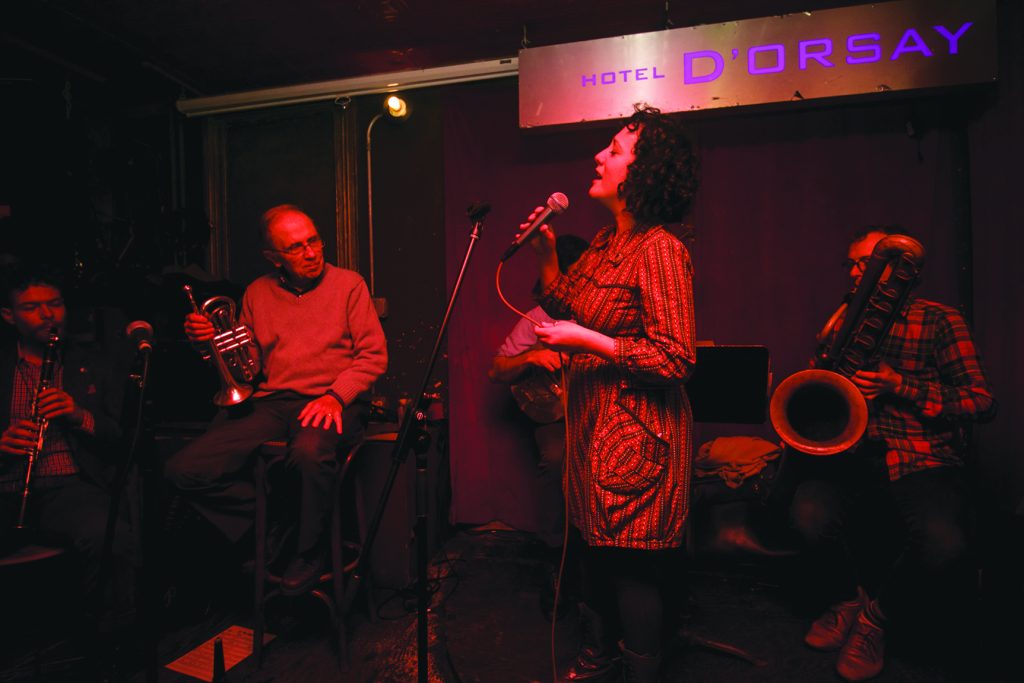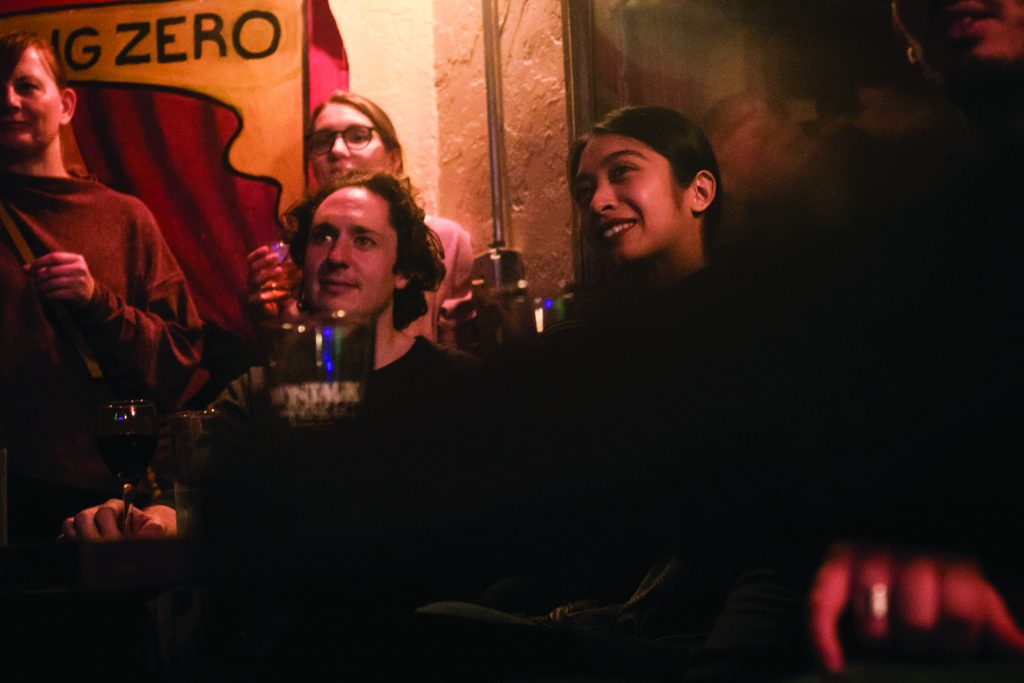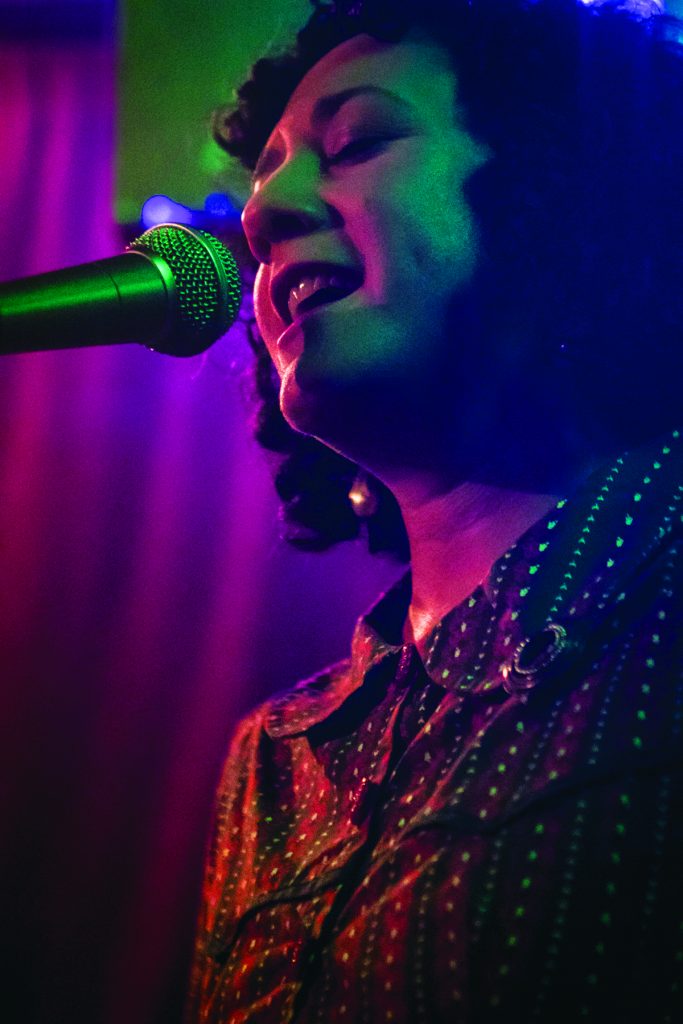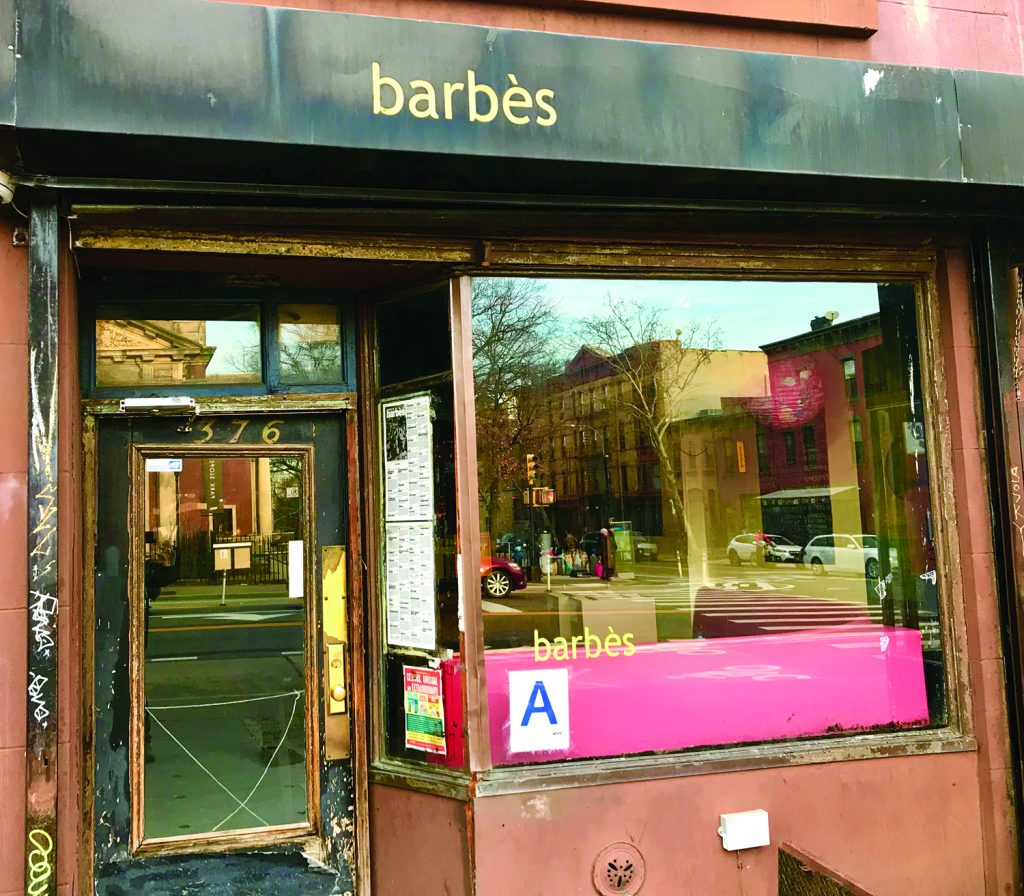
Fairly small and sparsely decorated, Barbès is unassuming, but the bar and performance space has grown into a Park Slope institution since its opening in May, 2002.
Barbès is well-known and well-loved locally for staging a unique combination of jazz, avant-garde, world, and classical music. Yet going into its 17th year of operation, the owners of Barbès, Olivier Conan and Vincent Douglas, are counting their lucky stars that the bar is still open. In May, 2017, the bar was nearly forced to shut down after accruing over $70,000 of debt. Like so many other local institutions in Brooklyn, Barbès had nearly fallen victim to ever-rising rents and changing demographics in the neighborhood it calls home.
In a last ditch-effort to keep the bar open, Conan and Douglas launched a crowdfunding campaign and hosted a series of benefit concerts from musicians on their record label. In an incredible show of support from community members and local musicians, Barbès managed to raise the $70,000 they needed to continue operating.
Nearly two years later, Barbès is still chugging along and making ends meet, but its owners still express concern for the future.
Conan and Douglas, a pair of French musicians, opened Barbès on May Day in 2002 with the goal of creating a grassroots performance space.
“It was based on an idea–we wanted to have a place that was very community-oriented,” said Conan. “The community at the time was very different from what it is now. There were a lot of musicians, a lot of artists who lived in Park Slope and we wanted to created a place where the people we wanted to play were also the people who hung out or who wanted to see the music that we brought.”
From the beginning, Conan and Douglas were committed to programming an eclectic variety of performers, representing different cultures and musical traditions from around the world. Barbès is named after a neighborhood northern Paris known for its large North African population and for the record stores that helped introduce Raï music, a form of Algerian folk music, to Western audiences.
Like its namesake, Barbès is defined by its multicultural character. In the same night, you can see Andy Statman, a prodigious Klezmer-influenced mandolin player, and Guinean Afro-jazz courtesy of the Mandingo Ambassadors, who play every Wednesday night at Barbès.
“We had an almost generalist cultural offering, but with a very special identity, and often we didn’t do the kind of bookings that most people did at the time,” said Conan. “We really tried to bring creative musicians who would want to come back and start projects at Barbès. A lot of things were born there, a lot of projects started. [It functioned] kind of like a lab.”
Recurrence is something that Barbès has prioritized over the years. The bar has given a number of artists weekly residencies over the years, creating a comfortable and communal dynamic between space, performer, and audience. “The idea of place is very important, and the audience would come see people specifically at Barbès because they thought something special would happen,” said Conan.
Barbès has also prioritized keeping costs low for its audience. Unlike many jazz bars and performance spaces in New York, Barbès does not have a drink minimum. The modest cover charges–most events are $10–go to the performers. Conan and Douglas prefer not to operate by the profit motive, though that business model has been increasingly difficult to sustain in recent years.
“The New York economy has obviously changed tremendously [since Barbès opened],” said Conan. “The model that worked in what was then an outer borough don’t work anymore. Rents have gone up, the price of doing business has gone up, the kind of clientele has changed. We still cater to the same kind of people, but they don’t live in the neighborhood anymore.”
Conan, a Paris native, moved to Brooklyn in the mid-80s. His first rent was $200 a month, a price that is pretty much unfathomable nowadays. “[Cheap rent] enabled you to be a slacker, and being a slacker is what enables you to be a good artist.”
He said that he has noticed something of an exodus of artists and musicians out of Brooklyn. There are increasingly few spaces dedicated purely to creative endeavors, and many of those that are have been pushed further into Brooklyn or into Queens.

New York has long been known as a creative hub and a cultural center of the United States, but Conan said that he has noticed many artists fleeing city’s ever-rising rents to live in more affordable cities in the US and other part of the world–cities like Philadelphia, Pittsburgh, Detroit, Berlin, and even LA.
“It’s hard for young musicians to live in New York, or artists in general–people in general if they’re not in finance,” he said. “It’s become super hard to move there and actually make a life there. A lot of people are moving to New York and spend two or three years and get hungry and move on to wherever.”
The compounding pressures of doing business in Park Slope nearly forced Barbès to close in 2017, but the bar managed to stay open due to an incredible show of support from the local community.
“We were wondering whether we could continue, because we owed like $70,000, which for people like us is a huge amount of money,” said Conan. “We decided to do a crowdfunding campaign, which worked beyond our wildest dreams.”
Conan and Douglas started an Indiegogo campaign, offering vinyl and CDs from the Barbès record label and concert tickets in exchange for donations. Over 800 people offered contributions. They also organized a number of benefit concerts with bands that often played at Barbès, the biggest of which took place at DROM on June 9, 2017.

“We brought in like 300 to 350 people I think. It was an amazingly beautiful night for me personally,” said Conan. “There’s something very humiliating about going to people and saying, ‘Hey, I need money, I’m broke.’ The response was just amazing, it was, ‘No, we’re a community and we care.’”
Between the Indiegogo campaign and benefit concerts, Conan and Douglas were able to raise the entire $70,000 dollars needed to lift the bar out of debt and keep it running for at least five more years. Their lease runs out in 2022, and it is still unclear whether they will be able to keep it open beyond then. They want to avoid transitioning to a more profit-oriented business model, fearing it would change the atmosphere.
“In order to be successful financially, we’d have to get bigger players, for one thing,” said Conan. “We’d also have to impose a lot of drink minimums and rules about how much you should spend and how quickly you should spend it. We’d have to get more capitalistic than we are and that would totally change the vibe, it would totally change the way people play, and the kind of talent we would get.”
Conan said that he is unsure if they would be able to keep Barbès open beyond 2022; the bar’s survival depends on how much their rent goes up when it comes time to send its next lease.
So Barbès looks ahead to an uncertain future, but for now it is still going strong and supplying the Park Slope community with unique musical offerings on a nightly basis. The back room is still bumping. Check it out while you still can.

